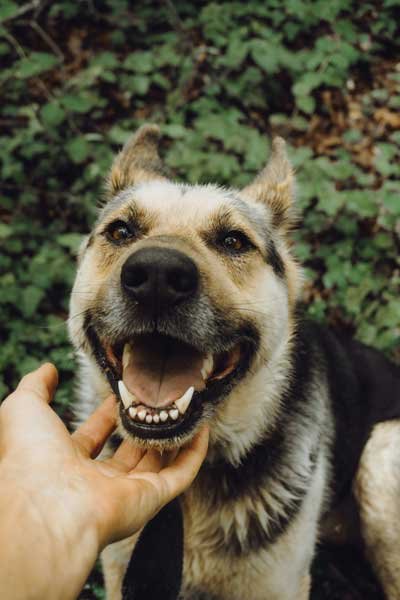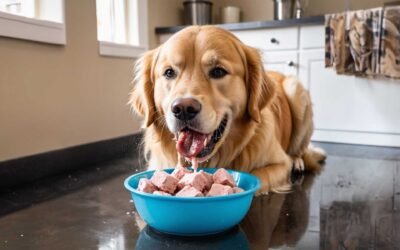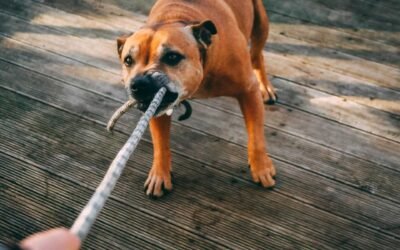Amidst all the cuddles and playtime, there’s an essential aspect of our furry companions’ health that often gets overlooked – It’s our Pet’s Oral Hygiene. This could be harmful for them in the long run.
Fortunately, we humans are able to tell people when we are suffering from tooth pain and seek appropriate help, unfortunately, our pets’ can’t vocalise their discomfort. Just imagine if your pet couldn’t enjoy their favourite treats or play with their favourite toys; due to dental pain.
Just like us, our furry friends require proper dental care to lead a happy and healthy life. Pet’s Oral Hygiene is more than just avoiding offensive odour or having shiny teeth.
In this blog, we’ll delve into the importance of oral hygiene for pets and provide valuable tips on how to maintain it effectively.
Signs that your Pet’s Oral Hygiene Needs Attention:
Bad Breath (halitosis)
If your furball’s breath smells particularly foul, like rotten eggs, it is a sure sign that they have gum disease.
Excessive Drooling
If your pet begins drooling excessively all of a sudden, it’s important to pay attention. This increase in drooling could signal a health issue that either prompts them to produce more saliva or is preventing them from swallowing their saliva like they normally would. This could be indicative of various dental issues, such as gum disease, loose teeth, or a dental abscess resulting from bacteria or injury.
Red swollen or bleeding gums
Inflammation and bleeding of the gums may indicate gum disease or another infection in your pet, potentially leading to toothaches or discomfort in their jaws.
Broken, Loose or discoloured teeth
When plaque and tartar remain in the mouth, bacteria get under the gum line, eroding tissue and bone that hold your pet’s teeth in place, causing broken, loose or discoloured teeth.
Yellow or brown tartar build-up around the teeth
If you notice yellow or brown stains around the gums, there’s a good chance that this is dental plaque.
Abnormal discharge from the nose or the mouth
Dental issues like periodontal disease, tooth decay, or abscesses can lead to pus or discharge from the mouth. Oral infections or abscesses, often caused by bacteria or foreign objects lodged in the mouth, can produce discharge. A mass/growth in the mouth, or deterioration of the bones around the upper jaw and nasal cavity, can cause nasal discharge.

Pawing at the mouth or face
If your pet is pawing, scratching or constantly licking parts of their mouth, it could signal a serious issue like dental pain or abscessed tooth.
Irritability or reluctance to be touched around the mouth
If your pet shows irritability or reluctance when being touched around the mouth, it could indicate various underlying issues, including gum disease, tooth decay, foreign object lodged in the mouth, oral infection or abscesses.
Changes in eating habits
If your little one doesn’t want to eat it’s regular food, despite no big changes to their diet, it is a cause for concern. Along with other health concerns, it might indicate gum disease.
How to take care of your Pet’s Dental Health
1. Healthy Diet
When it comes to a pet’s oral health, their diet should be approached holistically, considering nutritional content and prioritising foods with high-quality protein sources and appropriate textures. In the wild, dogs and cats routinely feed on fresh bones from their prey.
Chewing on raw bones can help clean your dog’s teeth, freshen their breath and stimulate the gum. The gentle abrasion of the bones against the dog’s teeth can help in natural teeth cleaning and act as a scraper that removes plaque and tartar, which in turn helps with bad breath.
Yogurt or Kefir is an excellent addition to your little one’s diet. The probiotics that are present in the yogurt or kefir will rid your pet’s mouth of the harmful bacteria which can help prevent inflammation and periodontitis from developing.
Another commonly accepted myth revolves around the belief that kibble benefits pets’ teeth by scraping off plaque as they chew. However, this topic is better suited for another blog post 🙂
Whatever food you choose to feed your pet, please ensure that the ingredients are natural and nutritious and there is no added sugar in it. Steer clear of food additives and preservatives, these artificial ingredients promote bacterial growth and compromise your pets’ dental health.
2. Fresh Clean water
Providing your pet with fresh clean drinking water every day, helps them in their overall health and dental well-being. Adequate consumption of water not only helps in maintaining the moisture level of the body, but also helps in washing away the leftover food particles and bacteria from your pet’s mouth. This reduces the likelihood of bacterial infection, tooth decay and any other periodontal disease.
3. Brushing
We can’t imagine a single day without brushing our teeth but what about our furry buddies? In order to maintain good oral health, it’s important to clean our pet’s teeth on a regular basis. Use a soft bristled toothbrush, alternatively you can also use a washcloth or gauze, along with a pet friendly toothpaste to brush their teeth gently.
Homemade dog toothpaste would be the best option. You can make your own doggy toothpaste by mixing 1 teaspoon of coconut oil + 1 teaspoon of baking soda + small pinch of cinnamon powder.
Realistically, during the initial days, you can start off by brushing twice or thrice a week for just 30 secs on each side. As your pet gets familiarised with the entire routine you aim for daily brushing. This will eventually keep plaque and tartar at bay.
4. Dental Treats
Your pet’s dental health significantly depends upon their eating habits as well. It becomes necessary to keep an eye on what kind of treats are given to them. Look for options with natural ingredients and textures that encourage chewing. Unfortunately, most of the treats available commercially contain excessive sugar and flavouring, which are unhealthy and unnecessary.
To explore more options on dental-friendly treats, you can check out our Premium Freeze Dried Treats. They are formulated from single source human grade proteins, 100% natural, additives & preservatives free and contain no added sugars.
5. Chew toys
Chew toys serve dual purpose- they not only provide mental stimulation to your pet but also help maintain oral hygiene. Regrettably, there are many unsuitable chew toys being marketed currently. Choosing the right kind of chew toys for your pet buddies can be crucial. Chew toys that have textured surfaces or ridges are quite beneficial as they help in removing plaque from their teeth. Additionally, chewing increases saliva production which naturally cleanses the teeth and reduces bacteria.
However, as with all chew toys, supervision is necessary to ensure your pet does not swallow any part of the toy. Safe chew toys can be part of a daily oral care routine to enrich your dog’s life.
6. Regular dental checkups
Routine dental checkups are a must for your pet. Professional dental cleaning is required for stubborn plaque and tartar, which brushing alone can’t clean.
This cleaning helps to keep multiple other dental issues at bay.
In addition to dental cleaning, routine visits to the vet help detect early signs of dental problems, enabling timely treatment recommendations before the problem escalates.
5. Gum Massage
Gently massaging your pet’s gums while cleaning their teeth, could be of great benefit to them. All you have to do is gently lift your pet’s lips and very softly start massaging their gums in circular motion. Massaging helps reduce inflammation and improves oral health. While massaging it’s recommended to check their actions and body language. Normally, pets close their eyes partially when they are calm and relaxed; however, if they feel uncomfortable during these massage sessions, it’s an indication of pain or inflamed gums, indicative of tooth decay.
Apart from promoting oral health it is an excellent way to spend quality time with your furry companions!!
By incorporating these simple yet effective tips into your furry friend’s daily routine, you can ensure that their dental health is in top shape. With these measures in place, your beloved little ones are all set to flash a perfect cheezzzzzzy smile during your cherished family moments !!
Check out our Chrunchy Chicken Neck Treats. Good for Teeth Good for Health.




0 Comments